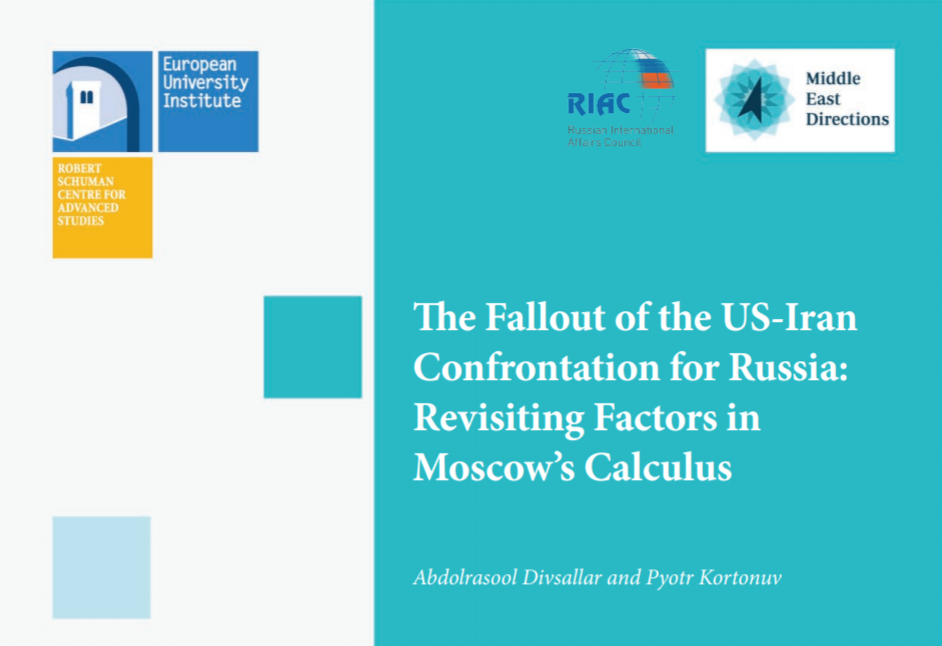MEDirections is delighted to share its latest research project report The fallout of the US-Iran confrontation for Russia: revisiting Moscow’s calculus by Abdolrasool Divsallar and Pyotr Kortunov, a joint publication with the Russian Council of International Affairs (RIAC).

Amid years of tense relations between the United States and Iran, the shadow of all-out war has not been a constant feature of relations as it has become in the last two years. The large-scale security implications of US-Iran conflict will change strategic assessment and the core interests of international actors in the Middle East. Among them, Russia, who has become a significant external power in the region, will be largely impacted by a US-Iran conflict. What factors shape Russian calculus of such a conflict? How Russia will respond if United States goes to war with Iran?
This report argues that the consequences of such a war on Russia are defined by a combination of benefit to Moscow from heightened tensions, and threats that strike at the core of its interests in the Region. The paper shows that Russian Middle East policy based on the existing balance of power, defined by the lack of a regional hegemon, is likely to become obsolete after a US-Iran war due to significant changes in regional powerhouses. This would be a costly development for Moscow and is likely to frame the Russian rationale in responding.
Through an in-depth analysis of both benefits and threats, the report provides a better understanding of factors involved in Russia’s calculus and will help to anticipate a Russian response strategy. The analysis reveals that Russia might benefit more from playing an active de-escalatory role in the region than adopting a passive wait-and-see stance.



